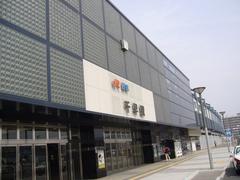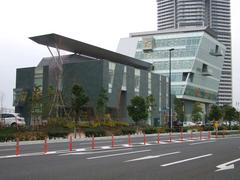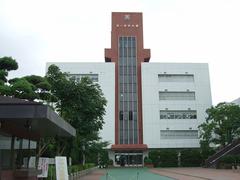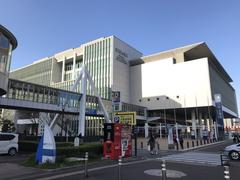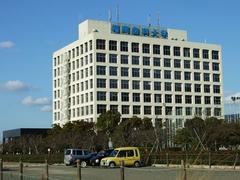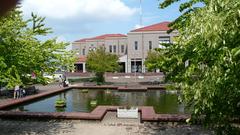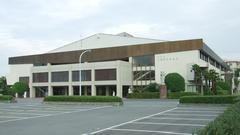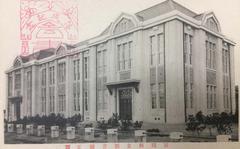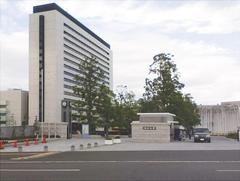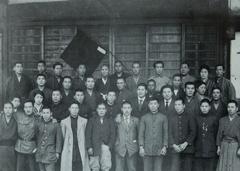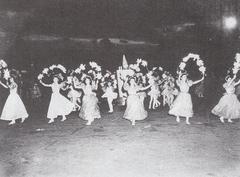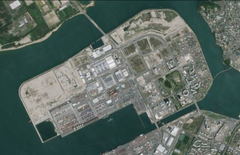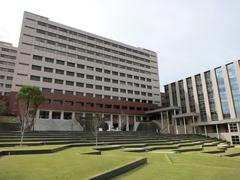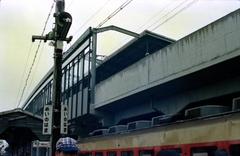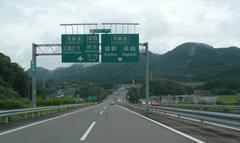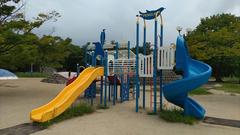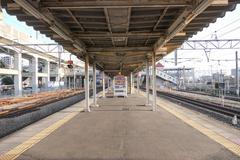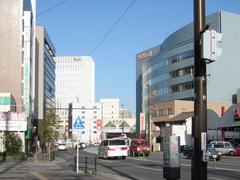Fukuoka Interchange Visiting Hours, Tickets, and Travel Guide
Date: 04/07/2025
Introduction: Fukuoka Interchange and Its Significance
Located at the core of Fukuoka City, the Fukuoka Interchange is a critical nexus in Kyushu’s extensive expressway network. Beyond its function as a transportation junction, it embodies the city’s transformative journey from an ancient port and cultural crossroads to Japan’s sixth-largest metropolis and Kyushu’s economic powerhouse. Its proximity to the Asian mainland has shaped Fukuoka’s history as a center of trade, migration, and innovation since the 8th century, with the modern interchange reflecting ongoing urban expansion and smart city initiatives (Wikipedia: Fukuoka; Go Fukuoka: Birth of Fukuoka City).
While the interchange itself is primarily infrastructure and open 24/7 without ticketing or visiting hours, its surroundings offer access to major historical landmarks, cultural venues, and vibrant festivals. Enhanced by sustainable transit options like the “Chari Chari” bike-share program and a robust subway and bus network, the Fukuoka Interchange is the ideal starting point for exploring both the city and the broader Kyushu region (World of Metro: Fukuoka City Subway; Real Estate Fukuoka: History). This guide provides a comprehensive overview of the interchange’s evolution, practical travel advice, nearby attractions, and tips for a seamless journey.
Table of Contents
- Introduction
- Historical Development of Fukuoka Interchange
- Visitor Information
- Major Nearby Attractions
- Seasonal Highlights and Local Events
- Practical Travel Tips
- Frequently Asked Questions (FAQs)
- Conclusion
- References
1. Historical Development of Fukuoka Interchange
Strategic Location and Urban Growth
Fukuoka’s unique geographic position near the Asian mainland made it a vital hub for trade and cultural exchange since ancient times. During the Meiji Restoration, the merging of Fukuoka and Hakata catalyzed rapid urbanization and the creation of robust road and rail infrastructure, setting the stage for the modern interchange (Wikipedia: Fukuoka; Go Fukuoka: Birth of Fukuoka City; Real Estate Fukuoka: History).
Modernization and Transportation Networks
Post-WWII reconstruction prioritized transportation, establishing Fukuoka as a regional industrial and logistics center. The Fukuoka Interchange was developed in tandem with the Kyushu Expressway and other arterial routes, connecting city districts, the airport, and outlying regions (Wikipedia: Transport in Fukuoka-Kitakyushu). Integration with high-speed rail, notably the Sanyō and Kyūshū Shinkansen, further boosted accessibility.
Socioeconomic Impact and Urban Expansion
The interchange enabled the expansion of Fukuoka’s urban footprint, linking central districts with emerging suburbs and supporting economic growth. The city’s population surpassed 2.5 million by 2005, consolidating its status as Kyushu’s most populous city (Wikipedia: Fukuoka).
Integration with Public and Sustainable Transit
Fukuoka’s commitment to sustainability is reflected in seamless connections between the interchange and public transit. The Fukuoka City Subway (three lines, 37 stations), extensive bus routes, and the “Chari Chari” bike-share system provide eco-friendly mobility options (World of Metro: Fukuoka City Subway; Jametro: Fukuoka Subway).
2. Visitor Information
Access, Transit Tips, and Ticketing
- By Car: The Fukuoka Interchange is accessible 24/7 via the Kyushu Expressway. Rental cars are available from Fukuoka Airport and Hakata Station, with GPS units commonly supporting English (Matcha-JP).
- By Public Transit: While the interchange is primarily for vehicles, nearby subway stations and Hakata Station provide access to city buses and trains (Japan Guide).
- Toll Payments: ETC (Electronic Toll Collection) cards are standard for rental cars. Foreign travelers can purchase the Kyushu Expressway Pass, offering unlimited travel for a set period (Japan Guide).
- Public Transport Tickets: Purchase subway and bus tickets at stations or use contactless IC cards like Nimoca for convenience.
Facilities and Accessibility
- Restrooms, vending machines, and fuel stations are available at service areas.
- Bilingual signage (Japanese/English) is common.
- The area and adjacent transit hubs feature ramps, elevators, tactile paving, and clear wayfinding for barrier-free access.
3. Major Nearby Attractions
Historical Sites
- Fukuoka Castle Ruins & Maizuru Park: Free entry, open year-round; guided tours available (Agoda).
- Dazaifu Tenmangu Shrine: Open daily, free entry; famed for academic blessings and seasonal festivals (Japan Guide).
- Kushida Shrine: Open 6:00 AM–6:00 PM, free; centerpiece of the Hakata Gion Yamakasa festival (Klook).
- Tochoji Temple: Renowned for its giant wooden Buddha statue and tranquil grounds.
Cultural and Shopping Destinations
- Hakata Station & JR Hakata City: Over 200 shops, rooftop garden, and dining (10:00 AM–9:00 PM) (Klook).
- Canal City Hakata: Shopping, dining, and entertainment complex, with free admission and hourly fountain shows (Agoda).
- Fukuoka Tower: 360° views, open 9:30 AM–10:00 PM, admission fee applies (Living Nomads).
- Yatai Food Stalls: Open evenings, offering local specialties like Hakata ramen.
4. Seasonal Highlights and Local Events
- Hakata Gion Yamakasa Festival: July, UNESCO-listed float races at Kushida Shrine (TripJive).
- Dontaku Port Festival: Early May, parades and city-wide celebrations (1xMarketing).
- Cherry Blossoms & Autumn Leaves: Maizuru and Ohori Parks are prime viewing locations (Japanese City).
- Nokonoshima Island Park: Seasonal flower festivals; accessible via ferry (Fun Japan).
5. Practical Travel Tips
- Passes: Consider the Kyushu Expressway Pass for driving or Fukuoka City Subway 1-Day Pass/JR Kyushu Rail Pass for public transport (Living Nomads).
- Navigation: Download navigation apps (Google Maps, My Route) for real-time updates (Fun Japan).
- Accommodation: Options range from luxury hotels near Hakata Station to budget stays in Tenjin, many with multilingual services (Agoda).
- Accessibility: Major sites are wheelchair accessible, but check ahead for older or traditional venues.
- Local Etiquette: Bow at shrine entrances, cleanse at temizuya, and observe photography rules.
6. Frequently Asked Questions (FAQs)
Q: Are there specific visiting hours or tickets for the Fukuoka Interchange?
A: The interchange is open 24/7 and does not require tickets. Service areas and nearby attractions have their own hours and, in some cases, entry fees.
Q: How do I access the interchange using public transportation?
A: Access Hakata or Tenjin stations by subway or bus, then transfer to a taxi or rental car for the interchange.
Q: Is the interchange area accessible for travelers with disabilities?
A: Yes, barrier-free facilities are standard at major transport hubs and service areas.
Q: What are the must-see attractions near the interchange?
A: Fukuoka Castle Ruins, Dazaifu Tenmangu, Kushida Shrine, Hakata Station, Canal City Hakata, and Fukuoka Tower.
Q: Are there guided tours available?
A: Various guided tours are available for Fukuoka’s historical districts and major attractions; inquire at tourist information centers.
7. Conclusion
The Fukuoka Interchange is more than a transportation junction—it is the gateway to Fukuoka’s vibrant blend of history, culture, and innovation. Whether you are exploring ancient shrines, enjoying contemporary shopping and dining, or traveling onward to Kyushu’s scenic destinations, the interchange provides convenience, accessibility, and a seamless start to your journey. For the latest travel updates, downloadable guides, and tailored itineraries, download the Audiala app and explore our related articles. Embrace Fukuoka’s spirit of tradition and modernity from this dynamic urban crossroads.
8. References
- Wikipedia: Fukuoka
- Go Fukuoka: Birth of Fukuoka City
- Real Estate Fukuoka: History and Cultural Heritage
- Wikipedia: Transport in Fukuoka-Kitakyushu
- World of Metro: Fukuoka City Subway
- Japan Guide: Fukuoka transportation
- Matcha-JP: Kyushu Expressway Pass
- Agoda: Experience Fukuoka – The Ultimate Guide to Top Attractions and Hidden Gems
- Springer: Fukuoka City Environmental Plans
- Klook: Best Places to Visit Fukuoka
- Living Nomads: Best Places to Visit in Fukuoka
- Japanese City: Fukuoka Guide
- Fun Japan: Fukuoka Nature and Parks
- Japan Activity: Fukuoka Itinerary
- TripJive: Fukuoka Festivals
- 1xMarketing: World Marketing Diary – Fukuoka
- Fukuoka Now: Getting Around Fukuoka
- Agoda: Fukuoka Hotel Recommendations
- Wanderlog: Fukuoka in July
- The Broke Backpacker: Fukuoka Itinerary
